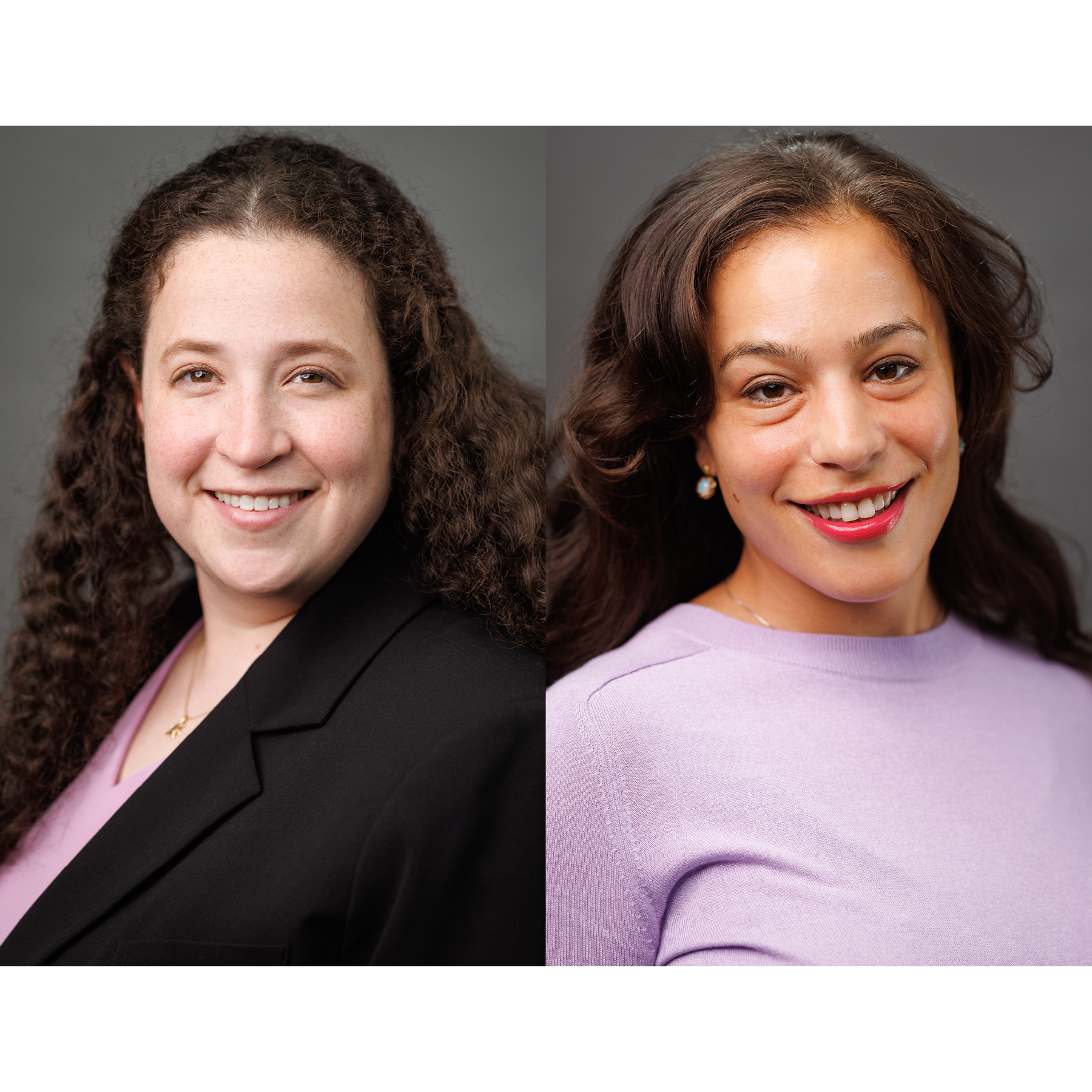For Rabbi Caitlin Brazner and Rabbi Rachel Rothstein, working together as the new assistant rabbis at The Temple, Congregation B’nai Jehudah is a reunion of sorts.
The two have known each other since 2017 when they spent their first year as Hebrew Union College (HUC) students together in Israel.
After that, the then-rabbinic students went their separate ways, with Rothstein attending HUC in Los Angeles and Brazner attending HUC in Cincinnati, which happens to be Rothstein’s hometown. When COVID-19 hit, Rothstein headed back home, taking HUC classes online and on campus, where she and Brazner would occasionally run into each other.
It was purely coincidental that they both applied for the two assistant rabbi positions available at B’nai Jehudah. They were already into the interview process when they learned the other was also a candidate, which was exciting news for both of them.
“We get along really well, and the person you work with makes a huge difference,” said Rabbi Brazner. “I think we felt that it was a person we respected and admired and could learn together.”
“And learn from each other without judgment, since we’re both fresh out of the rabbinate,” Rabbi Rothstein added.
The two were ordained this past May and officially began their roles as assistant rabbis on July 1. B’nai Jehudah is fortunate to get two rabbis, as there is a rabbinic shortage in the Reform and Conservative movements.
“With so many rabbis retiring or leaving pulpit work, the seminaries did not have enough rabbis to fill the empty positions,” senior Rabbi Stephanie Kramer wrote in an email to the congregation. “More than 30 reform congregations in the United States this year looking for a settled rabbi did not find one.”
There were multiple reasons why Rabbis Brazner and Rothstein chose B’nai Jehudah. The two said the congregation stood out from the very beginning with a presentation different from all the other synagogues. The presentation highlighted the new facility and the Michael Klein Collection, and it stressed the congregation’s desire to build a strong leadership team. Both rabbis could tell B’nai Jehudah was investing in the search process with effort and care.
“The location and how B’nai Jehudah describes itself was really a warm, welcoming, haimish place,” said Rabbi Brazner.
They were also excited to work with Rabbi Kramer. Rabbi Rothstein said that Rabbi Kramer being open to mentoring and teaching them was a big reason why she chose B’nai Jehudah, and she appreciated that Rabbi Kramer herself is newer to the Kansas City Jewish community.
“Rabbi Kramer’s been here for a year, so I feel like we have a lot of opportunity to build together,” Rabbi Rothstein said.
Rabbi Brazner added that the team aspect was something that really stood out to her, as Rabbi Kramer was “very upfront about how she wanted to put together thoughtful, collaborative teams.”
“It’s an exciting change and exciting that we get to be part of this team that’s being refreshed,” she said.
Kansas City itself appealed to the rabbis. Neither had been to Kansas City before their in-person interviews back in January (they were two of five candidates invited to visit). Both were given tours by members of B’nai Jehudah’s rabbinic search committee that showed them different aspects of the city — from the food and arts scenes to the schools and family attractions — and showed what life could be like here.
“We were here for 48 hours, and on the drive home I knew this was the right place,” said Rabbi Rothstein.
Rabbi Brazner’s husband, Scott Larsen, accompanied her on her visit and had the same feeling.
“He turned to me and said, 'I love it here. I hope you love this visit,’” she said.
During their visits, Rabbis Rothstein and Brazner also met with congregants to get a feel for the community they’d be serving.
“Everyone was very warm and genuine. It wasn’t a front they were putting on,” Rabbi Rothstein said. “I felt I was really getting to know people, and I appreciated that honesty.”
“And candidness,” Rabbi Brazner added. “Everyone answered questions in such a thoughtful way.”
At the time of this interview, the rabbis had been on the job for just three weeks, although both said it felt longer. In that short timeframe, they’ve been to the mikvah for two conversions, attended a funeral and put together a shiva minyan.
“It's like the world’s best whirlwind. I come home every day feeling so happy and excited about my job,” said Rabbi Brazner.
The rabbis are dividing their time into thirds: one-third spent on the pulpit, one-third in education — for learners of all ages — and one-third on an initiative of their choice that they will work with Rabbi Kramer to determine. They have their interests but want to respond to the needs of the community.
“As a team, we’re figuring out where we’re needed and where our focus is,” Rabbi Brazner said. “We are really invested in making that decision in reaction to the community, rather than saying, ‘This is what I want to do.’”
Regarding the rest of the year, Rabbi Brazner is looking forward to the start of Yallah, B’nai Jehudah’s religious school. Rabbi Rothstein is excited to begin working with the Childhood Development Center and leading Share Shabbat services. She’s also looking forward to the High Holidays, as busy as they are.
Both rabbis are excited to meet more people and get to know their congregants — and the community as a whole — better.
“The Jewish community here is vibrant; there is a lot going on,” Rabbi Rothstein said. “I knew what was going on from the Temple’s perspective before, but living here now, I’m so excited to be a part of this.”



